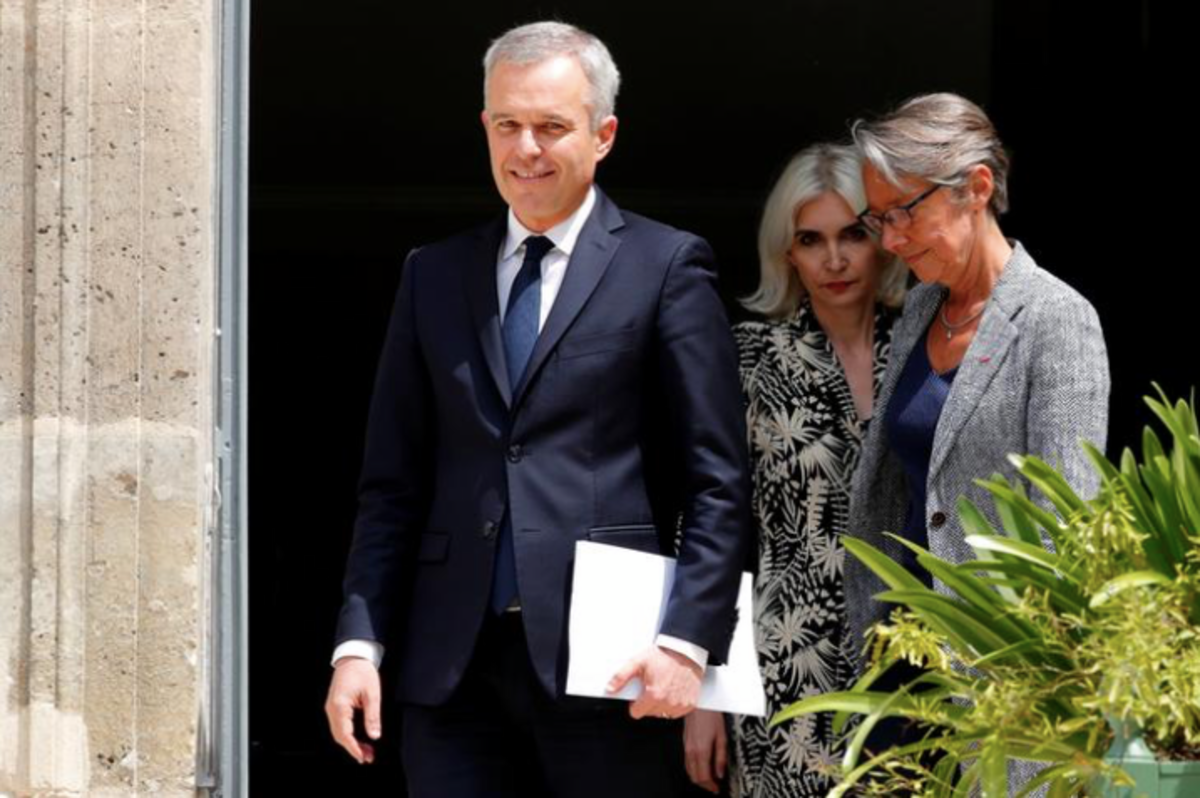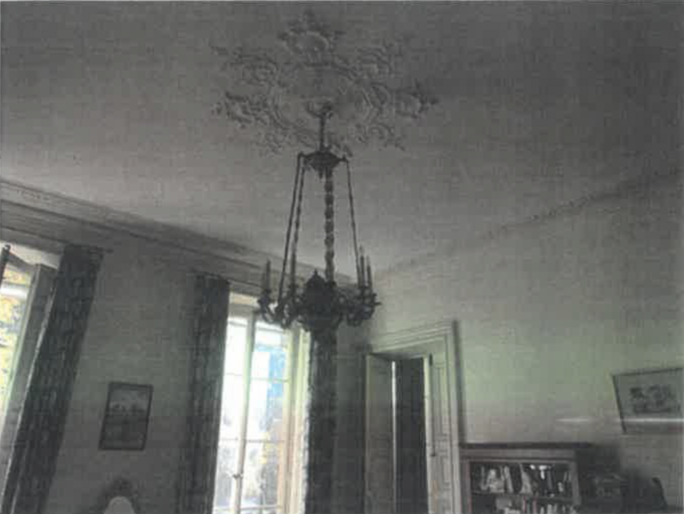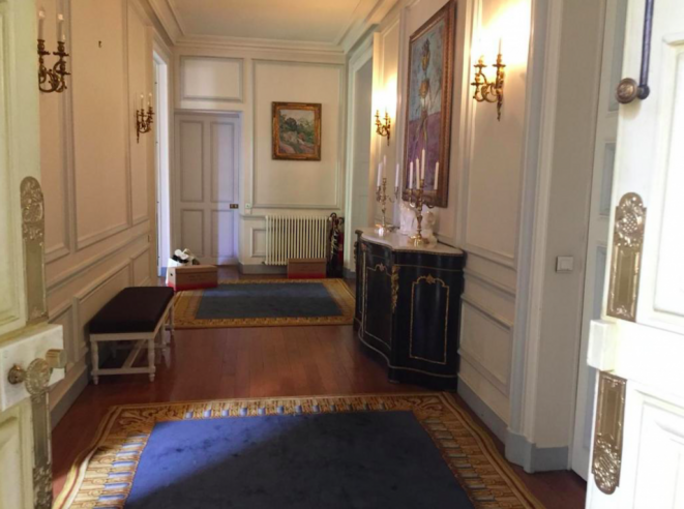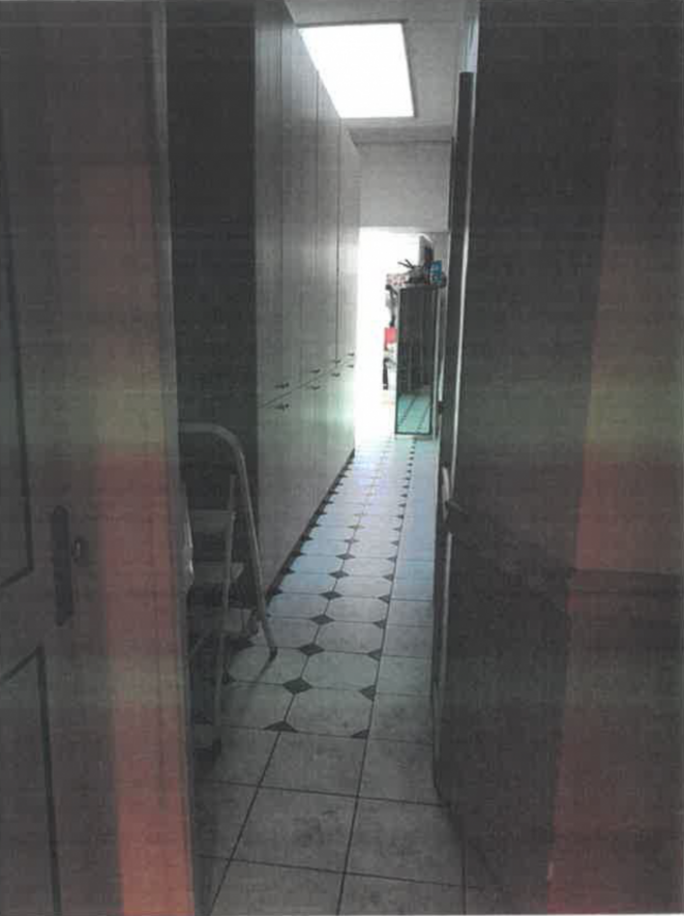French environment minister François de Rugy resigned on July 16th following Mediapart’s revelations of his use of public funds, notably for he and his wife to host grand dinner parties with fine wines and food when he was speaker of the National Assembly, and later to redecorate his grace and favour apartment as environment minister at a cost to the public purse of more than 60,000 euros.
Mediapart's revelations prompted two administrative inquiries whose results were published on Tuesday.
Neither of the separate inquiries were independent, but were carried out by the general secretariat of the National Assembly, the lower house, and the general secretariat of the French government, which is an administrative service of the prime minister’s office. They concerned, respectively, Mediapart’s reports into how Rugy and his wife hosted lavish dinner parties at his official residence when he was speaker of the lower house, the National Assembly, between 2017 and 2018, and a costly refurbishment of his grace and favour apartment after his appointment as environment minister in September last year.
Both inquiries have confirmed the events and amounts reported by Mediapart, although their interpretations of these differ. The findings have prompted Prime Minister Édouard Philippe to publish a new circular to members of his government setting out a deontology charter on use of public funds, and have also led the speaker of the National Assembly to set up a working committee to establish new measures to reinforce “the budgetary rules and procedures” of the speaker’s office.
Rugy, 45, once an outspoken campaigner for greater transparency in public office, had hoped to be exonerated by the internal inquiry into the refurbishing work he ordered on his grace and favour apartment which cost the public purse 64,523 euros. On Saturday, French daily Le Parisien reported that the inquiry had concluded that the work carried out at the 156 square-metre apartment, situated in the sprawling ministerial Paris mansion of the Hôtel de Roquelaure on the boulevard Saint-Germain in the capital’s 7th arrondissement, was “justified”, while Rugy took to Twitter to proclaim “Back to the facts”.
But in reality the facts established by the inquiry hardly plead in the former minister’s favour. The final report, compiled by the government’s general secretariat, which is attached to the prime minister’s office, confirmed in full the facts and figures first revealed by Mediapart on July 11th, concerning both the total sum of the refurbishments and that, in particular, of the construction of a vast dressing room area for Rugy and his wife that cost 16,996 euros.

Enlargement : Illustration 1

The inquiry concluded that the public administration regulations for the issuing of tenders for firms to carry out the work “had been globally respected” – Mediapart had not suggested otherwise – but it raised serious doubts about the costs of some of the refurbishments and decorations which it judged to be too high, and therefore placing in question the then-minister’s proper use of public funds.
While that 66-page report was in the form of a documented audit, the inquiry by the National Assembly was sorely lacking in investigative rigour and detail at just five pages long (only two of those were dedicated to the costs of the regular dinner parties) and based mostly on the results of answers provided by Rugy to questions submitted to him by the inquiry.
As Mediapart reported earlier this month, the dinner parties Rugy and his wife Séverine organised in the Hôtel de Lassay, the 18th-century Paris mansion that serves as the speaker’s official residence, sometimes included up to 30 guests, mostly friends of Rugy and his wife. They were attended to by official catering staff and wined and dined out of public funds. The wines, from the official parliament cellar, included Château Cheval Blanc 2001, worth around 550 euros per bottle, and 2004 Mouton-Rothschild (around 500 euros), served in crystal glasses.
The National Assembly probe cited 12 grand dinner parties hosted by Rugy and his wife between 2017 and June 2018, confirming Mediapart's reports but, contrary to those reports, it found that nine presented “no particular problems”, that they could not be described as private receptions and that the “culinary provisions conformed to habitual standards”. Of these dinners, the report found that six were organised “around a theme” of discussion on public issues, including "culture and the media, digital affairs and academia".
Earlier this month, Séverine de Rugy, a journalist with gossip magazine Gala, confirmed to Mediapart that the dinner guests were mostly made up of people from her circle of friends. But she claimed the essential purpose of such evenings was to help her husband remain connected to real life. “When you are a political figure, you cannot cut yourself off from society,” she said.
The report gave no details of the three other dinner parties, at Christmas, on Valentine’s Day and another which it did not date, which it described as being of an “excessive” nature with regard to “what could be considered reasonable” for meals served at the speaker’s residence that were of a “family or amicable character”.
Mediapart has since gathered further information about the parties, including photos, the identities of those present and statements from guests and Séverine de Rugy herself, which contradict the National Assembly report's findings on the nature of the receptions. Several guests at the dinners have confirmed that there was no “theme” to those they attended. Séverine de Rugy has previously told Mediapart that the dinner parties were “always” held with “a sort of solemnity”, adding: “In such surroundings, it is never private.”

Enlargement : Illustration 2

Meanwhile, the inquiry into the refurbishment of Rugy's ministerial residence questioned the cost of both the repainting of the apartment’s mouldings, which was paid 16,261 euros, and that of the dressing room area, which was completed with top-of-the-range materials, and that “the estimate was not readjusted by, for example, envisaging a lesser degree of finishing”.
The report also noted that some of Rugy’s decoration demands were regarded as unreasonable by his own administrative services, notably concerning made-to-measure furniture and the purchase of curtains. The minister had been advised to modify part of his orders, such as by replacing furniture with items bought from Ikea.
Some of the work therefore appears to have been carried out without respecting a circular issued by Prime Minister Édouard Philippe on May 24th 2017 shortly after Emmanuel Macron’s election as president. The circular, which established the new government’s ethical charter, set out that the use of public funds should be only for ministerial purposes. However, contacted by Mediapart, the prime minister’s office said that the report on Tuesday revealed “no irregularity attributable to the minister with regard to the respect of the principles of exemplarity”, including those presented in the May 2017 circular.
But the report’s lead author, Virginie Aubard, a management controller for the French armed forces and a senior member of the government’s general secretariat, intriguingly did not draw any conclusion as to whether Rugy had respected that circular, whereas she had specifically detailed this as being one of her tasks – which raises question over the impartiality of the inquiry, which was placed directly under the authority of the prime minister.
The prime minister’s office on Tuesday dismissed questions over the independence of the study, telling news agency AFP that the general secretariat service that compiled the report “is a corps made up of rigorous civil servants”.
However, Prime Minister Édouard Philippe has implicitly recognised that there is a problem with the existing rules about the ordering of work such a that carried out in Rugy’s apartment and which until now was the sole responsibility of the minister concerned, by publishing on Tuesday a new circular (see below) to members of government. This establishes that minister’s must first obtain “the approbation of the government general secretariat” before ordering any work on their official residences that costs more than 20,000 euros.
In the new circular, Philippe underlined that “exemplarity is the foundation of the confidence accorded by the French [people] to the government”, and called on government members to exercise their duties “with integrity, dignity and probity”. Sums spent by ministers, he wrote, “must be the subject, with regard to their sensitivity, of particular attention”.
“You must adopt behaviour that is modest and respectful of everyone,” stipulates the prime minister’s new circular. “It is advised that use of public funds is limited to the strict accomplishment of the ministerial mission by not profiting from one’s position for oneself or one’s close entourage.”
Meanwhile, Tuesday’s report found that Rugy’s decision to carry out renovation work of his apartment was justified in principle given that the last “significant renovation” of the lodging was in 2003 and that the last “refreshment” of decorations dated from 2009, nine years before the minister and his wife took up home there. The report said that ministerial staff “agreed” that the apartment’s decorations had suffered from wear.

Enlargement : Illustration 4

The photos published in the annexe of Tuesday’s report (see one example above) illustrate that it was far from being in a “dilapidated” state, as it was described to Mediapart by François de Rugy. The photos are similar to those published by Mediapart earlier this month (see below), and confirm the description of one of the builder-decorators invited to submit an estimate for the renovation who told Mediapart that it required only “a refreshing, with maybe a few little bits of touching up here and there, but not very much”.

Enlargement : Illustration 5

Tuesday’s report noted the high cost of repainting work on mouldings in the main bedroom, the living room and corridors. Out of the total of 30,046 euros spent on repainting all of those areas, the repainting of the mouldings, in a different colour to that of the ceilings, came to 16,261 euros. Whether that was a necessary sum, paid out of public funds, because of the protected historic status of the building, or simply a whim of the minister’s, is unclear. Contacted on Tuesday by Mediapart, Rugy’s lawyer Pierre-Olivier Sur did not respond.
The report criticised the cost of almost 17,000 euros for the building of the dressing room area, a photo of which was included in the document (see below). “The cost of the mural clothes cupboards is linked to the quality of the materials used and that of the fittings, which were made to measure,” it observed, noting that the order for the work was made “with a relative urgency”.

Enlargement : Illustration 6

The report also noted that some of the then-minister’s intentions for the refurbishments were not carried out, apparently on advice of his own ministerial staff. These included “made-to-measure” furnishings “and decorations” for the main bedroom, living room and bathroom. These were replaced with items from the state-owned stock of furniture and others bought at Ikea. It added that the administrative staff in charge of the maintenance of the Hôtel de Roquelaure also wrote down the cost of other “needs” expressed by the minister, notably the models of new curtains which were considered too expensive.
But the report did not address the question of whether the building of a dressing room and the repainting of the mouldings (to stand out from the colour of the ceilings), at a cost of 16,996 euros and 16,261 euros respectively, could be considered as part of the “strict” use of public funds in the framework of Rugy’s ministerial duties, as set out in Prime Minister Édouard Philippe’s first circular on a charter of ethics in May 2017. Contacted by Mediapart, the prime minister’s office said he was not considered to have violated that charter, while François de Rugy did not respond to a request for comment.
Refurbishment work on grace-and-favour apartments is far from being the only grey area of spending by ministers. Mediapart’s revelations of Rugy’s grand dinner parties with fine wines and food provided for by the public purse while he was president (speaker) of the National Assembly mirrors the numerous dinner parties organised by Emmanuel Macron when he was economy minister between 2014 and 2016. Also paid for out of public funds, Macron’s entertaining served to enrich his network of contacts ahead of launching his bid for the presidency, as revealed in an investigation by public radio France Info.
Writing in a comment article in French daily Libération on July 17th, a think tank on issues of probity in public office, l’Observatoire de l’éthique publique, revealed that French ministers are allowed a “dotation for representation expenses”, which have a yearly ceiling of 150,000 euros. That represents 12,500 euros per month. Just what is done with these funds is unclear. The prime minister’s office “remains very vague” about the subject, commented Matthieu Caron, a university lecturer on public law and director general of the Observatoire de l’éthique publique. “That is not normal,” he said, “there must be transparency on the subject. We will be submitting new questions in writing to obtain details.”
In his circular issued to government members this Tuesday following the report into the spending by François de Rugy, Prime Minister Édouard Philippe specified – for the first time – that such “representation expenses” must not be used to finance anything other than “spending directly linked to the exercise of ministerial duties”, adding: “Spending of a personal or family character by members of government (private receptions, personal and family meals, personal purchases, clothing, etc.) can in no case be taken in charge by the State.”
While the Rugy revelations may not have prompted an overhaul of the rules of ministerial transparency and control to the extent of those in some Scandinavian countries, notably Sweden, they have served at least to force the prime minister’s office into clarifying the existing regulations that apply to ministers concerning their lodgings and representation expenses.
-------------------------
- This is an abridged version of two reports by Mediapart in French and which can be found here and here.
English version by Graham Tearse


